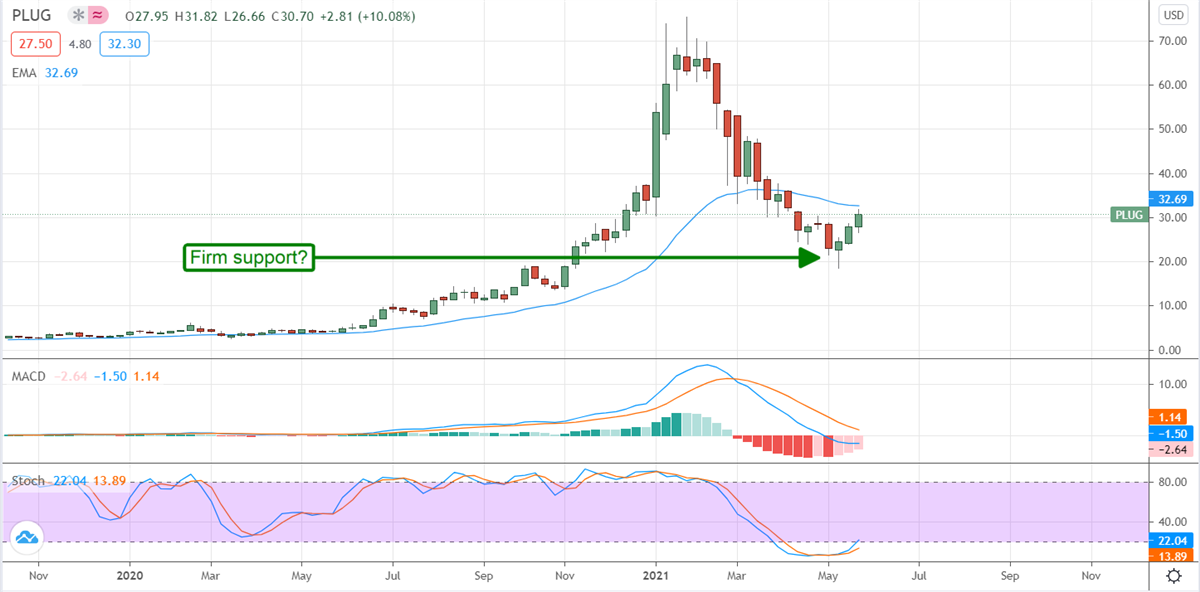3 Headlines Moving EV Markets Today Consolidation within the EV industry will help drive these stocks to new highs.
This story originally appeared on MarketBeat

The EV Market Is Consolidating In Preparation For Hyper-Growth
With the EV and the alternative fuel Industries entering their next phase the narrative has become one of partnerships, collaborations, and deals. For the big players, it's about securing supply chains and most importantly batteries to ensure ramping production targets can be met. While the smaller players are also having issues with batteries and supply chains, for them it's more about differentiation and securing a niche within this rapidly growing and evolving industry than anything else. It doesn't matter if a small, start-up EV company has a secure supply chain if some other larger player upstages them.
Nissan Is Ramping Up Its EV Production
Nissan Motor (OTCMKTS: NSANY) is only the latest major OEM automaker to announce an acceleration of EV plans. The company struck a deal with China-based battery maker Envision AESC Group that helps alleviate supply constraints. Nissan is committed to spending nearly two billion dollars under the terms of the deal and will build new battery plants in Japan and the United Kingdom. Nissan hopes to start production as early as the first half of 2024 and plans to produce as many as 700,000 EVs per year once they're at full speed. Nissan is already a 20% stakeholder in Envision AESC and may up the stake over the coming years.
In addition, Nissan is also looking to secure deals with Contemporary Amperex Technology and LG Chem to secure battery supply ahead of anticipated demand. We think the move may have been spurred by the global chip shortage in addition to EV demand. Nissan recently announced that it will make 500,000 fewer regular vehicles this year because of the shortage. In that light, it makes sense for the company to accelerate the shift to electrification rather than wait around for soon-to-be-obsolete technology.
Arrival Targets Delivery/Gig Economy
EU-based Arrival (NASDAQ: ARVL), primarily a manufacturer of commercial electric vehicles, has set its eyes on the delivery and gig economy. The company announced it was teaming up with Uber to build a purpose-built EV for the ride-hailing industry. Naturally, a vehicle used by Uber or other ride-hailing drivers will also be used to deliver food and other verticals within the delivery universe so we do see a big market for this vehicle. The Arrival Car will be designed with input from Uber drivers and should be ready by the end of the year. Uber and Arrival are also exploring strategic relationships in key markets such as the UK and EU. The Arrival Car should begin production in Q3 2023 but we'll see about that. Discounting the difficulty of producing a new car there are chip and battery shortages to think about. As for Uber, it is committed to becoming a fully electric platform in North America and Europe by 2023 so we expect to see some form of an Uber car if not the Arrival Car fairly soon.
Green Energy Is More Than Just Electric Vehicles
The switch to green energy is more than just a switch to electric vehicles. There are other ways to power vehicles than with electricity not to mention the need to create clean electricity with which to charge our EVs. In walks Plug Power (NASDAQ: PLUG). Plug Power designs and builds green hydrogen technology for both Industries and vehicles. The company just announced a new partnership with Johnson Matthey to help accelerate the development of high-performance hydrogen technology. The partnership is focused specifically on a high-performance electrolyzer with improved durability, performance, and efficiency than what is available today. A hydrogen electrolyzer harvests hydrogen from water and uses it to fuel a hydrogen engine. The hydrogen engine can be used to power a vehicle directly or to generate electricity and can be car-sized all the way through grid size for mass power generation.
Featured Article: How to Invest in a Bull Market









